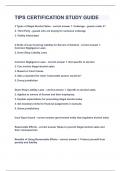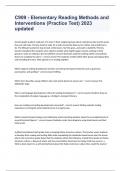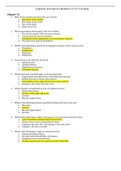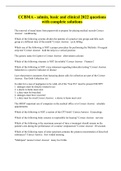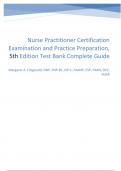What is crime?
Definition of crime
⇒ It is difficult to define crime, as it must encompass a range of offences: everything from murder to
motoring offences.
⇒ Farmer argues the definition of crime depends on your perspective (e.g. you will have a different
definition of crime depending on the political and social factors in the country you live).
⇒ Nevertheless, the simple definition is that a crime is conduct defined as such by statute or by
common law. In other words, and not very helpfully, something is a crime if the law says it is a crime.
⇒ In Board of Trade v Owen (1957), Lord Tucker defined crime as "an unlawful act or default which is an
offence against the public and renders the person guilty of the act or default liable to legal punishment".
• However, this definition can be criticised as not reflecting current attitudes to crime: for
example, it only mentions ‘punishment’ as a response to crime and not other responses to
crime, such as restoritative justice.
Why do we need a definition of crime?
⇒ Defining what is a crime is important if we are to distinguish a crime from a civil wrong
• If you assault someone, for example, this is both a crime and a tort. Technically, through either
route (criminal or tort) a financial loss may be incurred by the defendant: in criminal law the
defendant could be fined, whereas in tort law the defendant may be sued for damages.
• Thus, the importance in distinguishing a crime from a civil wrong lies in the moral blame the
defendant will be exposed to if convicted of a crime.
• If you are guilty of a crime you will have to carry a certain level of condemnation (i.e. public
dissaproval) that does not necessarily exist if convicted of a tortious offence.
• Although, note, it may still be possible to award punitive damages in civil proceedings (e.g. tort
proceedings) if the court regards the tort or breach of contract as a particularly blameworthy
one.
Functions of criminal law
The main functions
⇒ Maintaining order: Criminal law provides predictability, letting people know what to expect from
others. Without criminal law, there would be chaos and uncertainty.
⇒ Resolving disputes: The law makes it possible to resolve conflicts and disputes between quarrelling
citizens. It provides a peaceful, orderly way to handle grievances.
,⇒ Protecting individuals and property: Criminal law protects citizens from criminals who would inflict
physical harm on others or take their possessions.
⇒ Providing for smooth functioning of society: Criminal law enables the government to collect taxes,
control pollution, and accomplish other socially beneficial tasks.
⇒ Safeguarding civil liberties: Criminal law protects individual rights.
Academic View
⇒ Most academics view the criminal law as having a political function: to maintain order.
⇒ However, Duff argues criminal law enables “perpetrators of public wrongs [to] be called to account”
i.e. it allows criminals to be held responsible for their crimes.
Principles of criminal law
The Legality Principle
⇒ The principle of legality is the legal ideal that requires all law to be clear.
⇒ It requires decision makers to resolve disputes by applying legal rules that have been declared
beforehand, and not to alter the legal situation retrospectively by discretionary departures from
established law
⇒ In criminal law it means the court should not punish people for acts or omissions that were not
criminal at the time those acts or omissions took place. The principle is also thought to be violated
when the punishment for a particular crime is increased with retrospective effect.
⇒ It requires the law be capable of being obeyed. If laws were kept secret that would clearly infringe
the legality principle.
⇒ It requires the law be readily available to the public. If a law was made prohibiting your heart to beat
in public that would clearly infringe the legality principle.
Responsibility Principle
⇒ The principle of responsibility is the principle that one should only be found guilty of crimes they are
responsible for. For example, if you were to have a seizure and committed a crime as a result of that
seizure, the principle may be infringed if you were punished for it.
The minimal criminalisation principle
⇒ The principle of minimal criminalization articulates that only serious offences which are adverse to
society should be criminalised, but not trivial ones.
⇒ If every tiny offence was criminalised we would left with heavily over-crowded prisons.
The proportionality principle
,⇒ The proportionality principle means punishment for a given crime should be roughly proportional to
that crime’s seriousness. It would be an outrage if, for instance, the punishment for rape was the same
as the punishment for speeding.
The fair labelling principle
⇒ The fair labelling principle requires that the description of the offence should match the wrong
done (Chalmers and Leverick). For example, if the defendant kills someone through negligence, ‘murder’
would not be a fair label to attach to what the defendant did.
Criminal Conduct
These are some of the principles academics have suggested should govern Parliament’s decision on
criminalisation:
Autonomy
⇒ When deciding whether conduct should be criminalised the court must take into account autonomy
→ this is the idea that one should be able to live their life as they please.
⇒ Criminal law is used to avoid somebody’s practice of autonomy from interfering with another person’s
autonomy
⇒ The autonomy principle also explains why people should be liable for the bad choices they make.
⇒ The autonomy principle is not without controversy: it has been argued, for example, that although
the right to choose how to live our lives may be available to the rich, this may not be the case for the
poor.
The Harm Principle
⇒ The harm principle refers to a theory of crime that an action can only be banned if it causes harm to
someone.
⇒ John Stuart Mill articulated this principle in On Liberty, where he argued that, "the only purpose for
which power can be rightfully exercised over any member of a civilized community, against his will, is to
prevent harm to others".
Practicality
⇒ Conduct will only be criminalised if the law would be practically enforceable.
Culpability
General Overview of Culpability
⇒ For a crime, it is normally not enough to show that the offender caused harm to another; it must also
be shown that the defendant was blameworthy in harming the other person.
, ⇒ In other words, it must be shown that the defendant was responsible for the harm.
Academic Commentary
⇒ Lacey demonstrates that the law seeks to ensure only blameworthy individuals are punished
Actus Reus
Elements of a crime
Basic Introduction
⇒ A person cannot usually be found guilty of a criminal offence unless two elements are present:
an actus reus, Latin for guilty act; and mens rea, Latin for guilty mind.
⇒ To be guilty of an offence, an accused must not only have behaved in a particular way, but must also
usually have had a particular mental attitude to that behaviour.
⇒The exception to this rule is a small group of offences known as crimes of strict liability.
⇒ The definition of a particular crime, either in statute or under common law, will contain the
required actus reus and mens rea for the offence. The prosecution has to prove both of these elements
so that the magistrates or jury are satisfied beyond reasonable doubt of their existence.
⇒ If this is not done, the person will be acquitted, as in English law all persons are presumed innocent
until proven guilty
• Woolmington v DPP (1935) is a landmark case where the presumption of innocence was first
articulated in the Commonwealth.
What is the actus reus?
⇒ The >actus reus of an offence tells us what we can and cannot do. For example, killing someone
would be the actus reus of murder.
⇒ An actus reus can consist of more than just an act, it comprises all the elements of the offence other
than the state of mind of the defendant. Depending on the offence, this may include the circumstances
in which it was committed, and/or the consequences of what was done.
• For example, the crime of rape requires unlawful sexual intercourse by a man with a person
without their consent. The lack of consent is a surrounding circumstance which exists
independently of the accused’s act.
Voluntary act requirement
Basic Introduction to the voluntary act requirement

